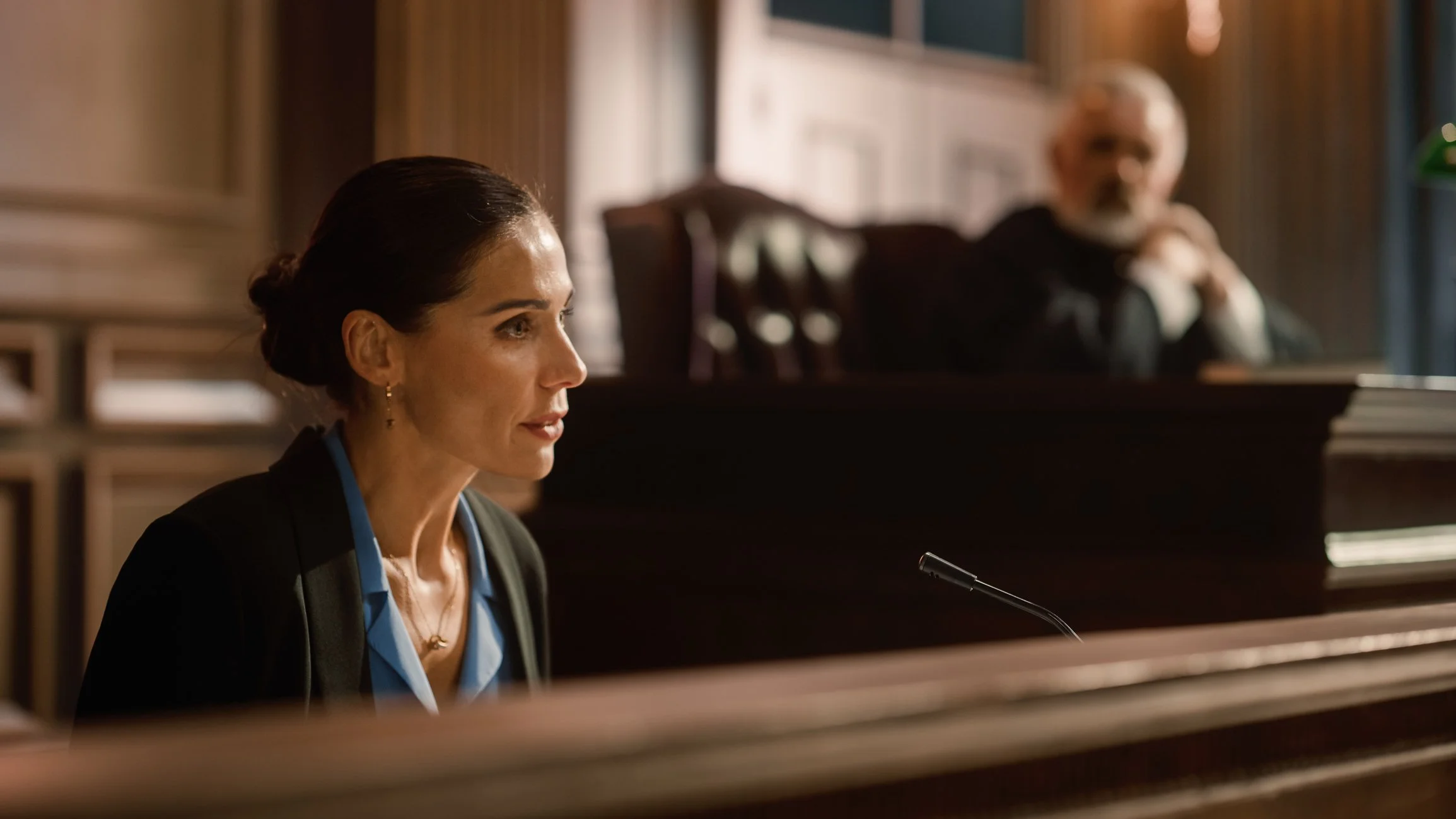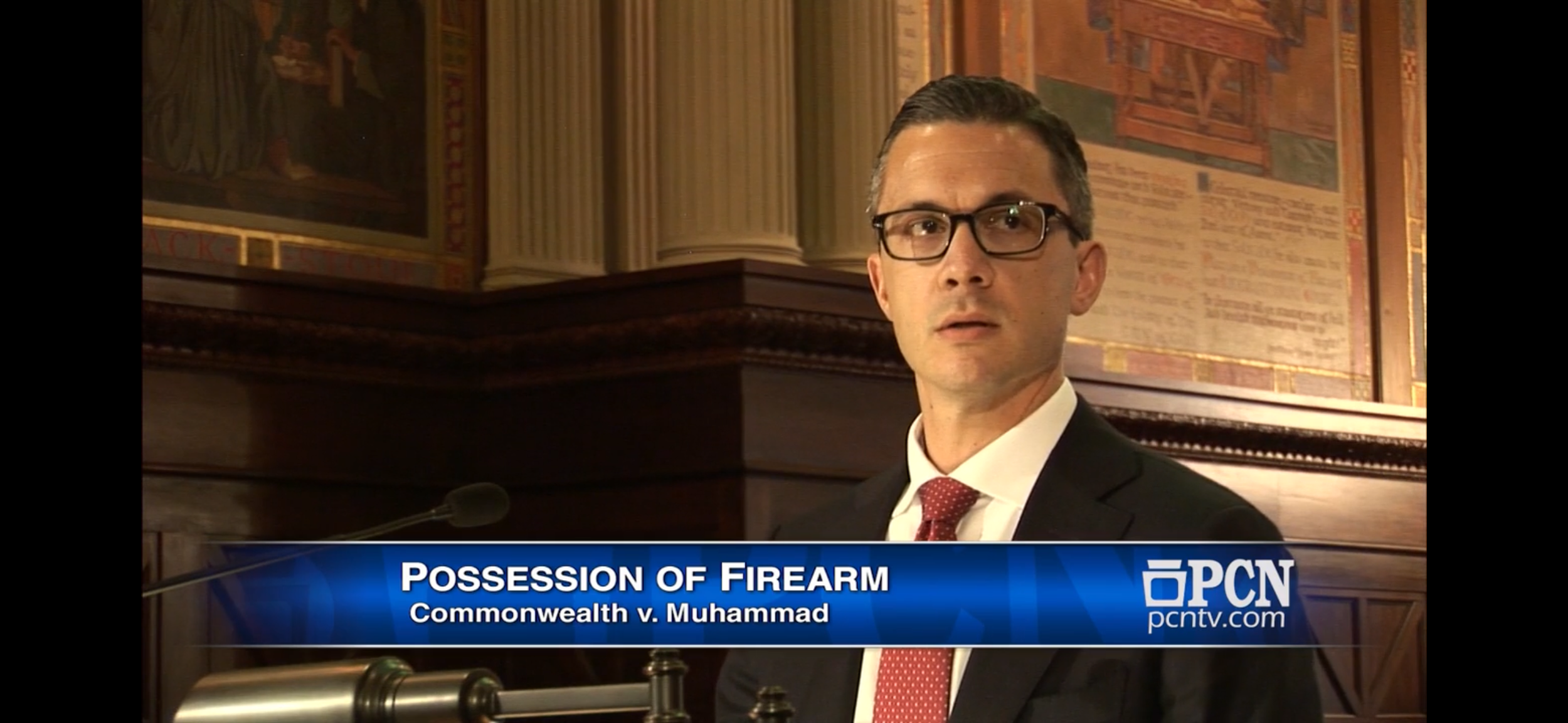
Philadelphia Criminal Defense Blog
PA Supreme Court: Trial Court May Not Consolidate Separate Sexual Assault Cases Based Solely on “Similar” Allegations, and Rape Kits Are Testimonial Under the Confrontation Clause
Criminal Defense Lawyer Zak T. Goldstein, Esquire
The Pennsylvania Supreme Court has decided the case of Commonwealth v. Walker, holding that the trial court abused its discretion when it consolidated three separately-charged CODIS hit rape cases for a joint trial under the common plan, scheme, or design exception to the rule against propensity evidence.
The Court also held that the admission of rape kit reports without testimony from the nurse examiners who actually prepared them violated the defendant's constitutional right to confrontation. This is a landmark decision that significantly tightens the standard for when the prosecution may try separate offenses together and provides important new protections for defendants in sexual assault cases.
The Facts of Commonwealth v. Walker
In July of 2019, the defendant was arrested and charged with the rape of three different women on three separate occasions — P.C. in January of 2011, T.A. in December of 2014, and B.H. in January of 2015. Each complainant underwent a sexual assault examination after the attack, and DNA from the perpetrator was recovered and uploaded to the Combined DNA Index System (CODIS). In December of 2018, a CODIS search revealed that the male DNA samples from all three victims matched, and that DNA profile was later linked to Walker.
In each case, the defendant met the victim, a stranger, on a public street in Philadelphia, convinced her to follow him to a secluded area, and then sexually assaulted her. However, the specific details of each assault varied significantly. In one case, the perpetrator used a knife; in another, he punched the victim in the face; in the third, he struck the victim with a tire iron. He robbed only one of the three victims. One rape occurred near midnight while the other two occurred during the late morning. Each assault took place in a different Philadelphia neighborhood.
The Commonwealth moved to consolidate all three cases for a joint trial, arguing that the evidence of each assault would be admissible at a trial for the others because the assaults shared sufficient similarities to establish a common plan, scheme, or design. Despite the defendant’s objection, the trial court granted the Commonwealth's motion.
Prior to trial, the defendant also filed a motion in limine seeking to preclude the Commonwealth from introducing the rape kit reports prepared by the sexual assault nurse examiners at the Philadelphia Sexual Assault Response Center (PSARC) for two of the three victims. The Commonwealth acknowledged that the nurses who actually performed the examinations no longer worked at PSARC. Instead, the prosecution planned to introduce the reports through the testimony of PSARC's nurse manager and clinical director who did not personally conduct any of the examinations. The trial court denied the defendnat’s motion.
At trial, the defendant was convicted on numerous charges including rape, involuntary deviate sexual intercourse, and sexual assault. He was sentenced to an aggregate of 28 to 56 years' imprisonment and classified as a Tier III sex offender with lifetime registration under SORNA. The Superior Court affirmed, and the Supreme Court granted allowance of appeal.
The Supreme Court's Ruling on Consolidation
The Pennsylvania Supreme Court reversed, finding that the trial court abused its discretion in consolidating the three cases. Under Pennsylvania Rule of Criminal Procedure 582, separate offenses may be tried together only if the evidence of each offense would be admissible in a separate trial for the other. The key question was therefore whether evidence of the other rapes would have been admissible under the common plan, scheme, or design exception to Pennsylvania Rule of Evidence 404(b), which generally bars the prosecution from introducing evidence of a defendant's other bad acts to show criminal propensity.
Critically, the Court took the opportunity to reshape the law on this issue. Over the years, Pennsylvania courts had applied an increasingly diluted version of the common plan, scheme, or design exception. What started as a narrow exception, requiring either a true overarching plan linking crimes together or a modus operandi so distinctive as to be a signature, had devolved into a vague “logical connection” test that merely required “sufficient similarities” between the crimes. The Court recognized that this relaxed standard effectively gutted Rule 404(b)’s core protection against propensity evidence.
Writing for the majority, Justice McCaffery abrogated the “logical connection” test and returned to the original two-pronged framework from Shaffner v. Commonwealth, 72 Pa. 60 (1872). Going forward, the Commonwealth may consolidate separately-charged offenses under the common plan, scheme, or design exception only where it can establish either: (1) the offenses constitute “signature crimes,” meaning the facts are so unique and distinctive that they must have been committed by the same perpetrator; or (2) the offenses were linked to achieve a common goal, meaning the bad acts are part of an integrated plan to accomplish a specific objective.
Applying this newly clarified standard to the defendant’s case, the Court found that neither exception was satisfied. First, the three rapes did not qualify as signature crimes. While all three involved stranger assaults, the specific details varied considerably. The perpetrator used different weapons (or none at all), initiated contact differently, and committed the assaults in different neighborhoods at different times. These were, as the Court put it, characteristics typical of any stranger rape case, not a unique signature. Second, there was no evidence of a preconceived plan linking the three crimes together to achieve a common goal. The evidence simply showed that the perpetrator raped women when presented with the opportunity to do so. A general desire to commit the same type of crime is not the kind of common plan or scheme that Rule 404(b) contemplates.
The Court also emphasized an important procedural point. The decision to consolidate cases is made pretrial, before the defendant has revealed any defense strategy. The Commonwealth cannot justify consolidation based on its anticipatory rebuttal of a defense, such as a consent defense, that the defendant has not yet raised. A defendant has no duty to present evidence and may instead rely on the presumption of innocence and the Commonwealth's burden of proof.
The Supreme Court's Ruling on the Rape Kit Reports
The Supreme Court also ruled in the defendant’s favor on the Confrontation Clause issue. The Sixth Amendment and Article I, Section 9 of the Pennsylvania Constitution guarantee criminal defendants the right to confront the witnesses against them. In a line of cases including Crawford v. Washington, Melendez-Diaz v. Massachusetts, Bullcoming v. New Mexico, and most recently Smith v. Arizona, the United States Supreme Court has made clear that the Confrontation Clause applies to forensic reports and that the prosecution may not introduce testimonial hearsay, including forensic reports, without providing the defendant an opportunity to cross-examine the person who actually prepared the report.
The Pennsylvania Supreme Court held that rape kit reports are testimonial in nature. The reports are formally titled “Sexual Assault Forensic Examination Forms,” and the very word “forensic” signals their evidentiary purpose. The reports were created primarily to establish past events and collect evidence relevant to a potential criminal prosecution, not simply to provide medical treatment. The Court also noted that Pennsylvania statute explicitly defines a rape kit as a “sexual assault evidence collection kit,” and the law requires health care facilities to notify law enforcement of the alleged assault.
Because the rape kit reports were testimonial and were offered for their truth at trial, the Confrontation Clause required the testimony of the nurse examiners who actually prepared them. The testimony of PSARC’s clinical director, who did not personally perform any of the examinations, was not an adequate substitute. The Court rejected the Commonwealth's argument that the reports were admissible under the medical records or business records exceptions to the hearsay rule. Hearsay exceptions cannot override the Confrontation Clause. When an out-of-court statement constitutes testimonial hearsay, it may not be admitted at trial unless the defendant had the opportunity to cross-examine the declarant, regardless of whether the statement would otherwise qualify as a hearsay exception.
The Takeaway
Commonwealth v. Walker is one of the most significant Pennsylvania Supreme Court decisions in recent years for criminal defendants. On the consolidation issue, the Court meaningfully strengthened the protections of Rule 404(b) by rejecting the watered-down “logical connection” test and demanding that the Commonwealth meet a real standard before it can try separate cases together. This matters because consolidation is enormously prejudicial. A jury hearing about multiple allegations is far more likely to convict on all of them than a jury considering each charge independently. Going forward, the prosecution will need to show either a true signature crime or a genuine common plan linking the offenses together, rather than simply pointing to broad similarities between different cases.
On the Confrontation Clause issue, the decision provides a clear rule for sexual assault cases: the prosecution must produce the actual nurse examiner who prepared the rape kit report, or it cannot introduce the report. This prevents the Commonwealth from relying on a “surrogate witness” who simply reads the absent nurse’s report into the record.
Defense attorneys handling sexual assault cases, cases involving motions to consolidate, or cases involving the admission of forensic reports should take note of this decision and use it to protect their clients’ rights.
Facing Criminal Charges? We Can Help.
Goldstein Mehta LLC Criminal Defense
If you are facing criminal charges or under investigation by the police, we can help. We have successfully defended thousands of clients against criminal charges in courts throughout Pennsylvania and New Jersey. We have successfully obtained full acquittals and dismissals in cases involving Conspiracy, Aggravated Assault, Rape, Violations of the Uniform Firearms Act, and First-Degree Murder. Our award-winning Philadelphia criminal defense lawyers offer a free criminal defense strategy session to any potential client. Call 267-225-2545 to speak with an experienced and understanding defense attorney today.
PA Supreme Court Fails to Reach Decision on Whether Search Warrant Required for Google’s Search Records
Criminal Lawyer Zak Goldstein
On December 16, 2025, the Pennsylvania Supreme Court issued a fractured decision in Commonwealth v. Kurtz, addressing a cutting-edge digital privacy question: do you have a reasonable expectation of privacy in the terms you type into a Google search bar?
The Court’s answer was “no”—at least for general, unprotected searches. However, because the decision was reached by a plurality (meaning a majority of justices did not agree on a single legal reasoning), it is not binding, and the ruling leaves significant questions unanswered regarding other types of digital data, particularly Internet Service Provider (ISP) records and IP address subscriber information.
Commonwealth v. Kurtz: The “Reverse Keyword” Warrant
In Kurtz, police were investigating a violent home invasion rape but had no DNA match or suspect. Investigators obtained a “reverse keyword search warrant” compelling Google to identify any IP addresses that had searched for the victim’s home address prior to the crime. Google identified an IP address associated with the defendant, leading to additional investigation, an eventual DNA match, and his conviction for rape in this case and other unsolved cases.
The defendant challenged the warrant, arguing he had a privacy interest in his search history and that the warrant provided no reason to believe that the perpetrator conducted a Google search at all let alone for the victim’s address. The trial court rejected this claim, and the defendant appealed. The Superior Court rejected the claim, too, finding that the defendant did not have a reasonable expectation of privacy in the records maintained by Google and that the police had obtained a legitimate search warrant even if he did. The defendant petitioned the Supreme Court for review, and the Pennsylvania Supreme Court agreed to hear the case. That Court, however, failed to reach a decision - three justices concluded that he had no reasonable expectation of privacy in the search records, three concluded that the warrant was fine and declined to address the REOP decision, and one justice would have granted the motion to suppress.
Accordingly, the Court affirmed the defendant’s conviction as it would have required four justices to vote to overturn it. In support of upholding the conviction, Justice Wecht authored an Opinion Announcing the Judgment of the Court (OAJC) which reasoned that the defendant did not have a reasonable expectation of privacy in the information and that investigators did not have to obtain a warrant at all because:
Voluntary Disclosure: By typing a query into Google, the user voluntarily discloses that information to a third party, meaning the user does not make an attempt to keep the information private.
Notice: Google’s privacy policy explicitly warns users that it collects search queries and shares them with law enforcement.
Lack of Necessity: The Court noted that using Google is a choice, not a necessity; users can use other search engines, libraries, or physical maps. They can also take steps to shield their identities and increase their privacy.
Accordingly, the defendant had no reasonable expectation of privacy in the search results.
Why Kurtz Is Not the Final Word
While Kurtz is a significant ruling for search history and the Superior Court’s ruling stands, it is not a total defeat for digital privacy rights in Pennsylvania for two key reasons:
1. It Is a Plurality Opinion: Crucially, the main opinion in Kurtz was joined by only three of the seven justices. When a court decides a case without a majority opinion, the holding is generally limited to the specific result of that case, and the legal reasoning is not fully binding precedent for future cases. This means the broad language about the third-party doctrine may not apply automatically to different factual scenarios or even similar scenarios.
2. It Is Limited to "Unprotected" Searches: The Court repeatedly stressed that its ruling applied only to “general, unprotected internet searches.” The justices expressly stated they were not deciding the privacy rights of users who utilize Virtual Private Networks (VPNs), private browsing modes, or encrypted browsers. Moreover, the courts have required legitimate search warrants where investigators seek to obtain bank records, phone records, and location data.
The Next Battleground: IP Addresses and ISP Records
The Kurtz decision creates a sharp distinction that defense attorneys can use in cases involving IP addresses and ISP subscriber records (the information “behind” the IP address, such as the customer's name and address).
In Kurtz, the Court emphasized that users have a choice: they can use Google, or they can use a privacy-focused competitor (like DuckDuckGo) or offline resources . However, this logic does not apply to IP addresses. Kurtz dealt with whether the police could obtain a list of IP addresses that had searched for a particular address. It did not address whether the police could obtain the information behind the resulting IP addresses without a search warrant, and in Pennsylvania, police often use administrative subpoenas to obtain that information rather than warrants. Whether they can do that under the Pennsylvania Constitution remains questionable for the following reasons:
Necessity vs. Convenience: You cannot use the internet without an IP address. It is technologically impossible. Unlike choosing a search engine, assigning an IP address is an involuntary condition of internet access, similar to how bank records or phone numbers are necessary to participate in modern life. Pennsylvania courts have long held that citizens do have privacy rights in bank records (Commonwealth v. DeJohn) and phone records (Commonwealth v. Melilli) because they are essential services.
The “Information Behind the IP”: Kurtz dealt with the content of a search communicated to Google. ISP inquiries deal with the identity of the user maintained by the internet provider. This information is generated automatically by the ISP, not voluntarily typed out by the user.
The Takeaway
At least for now, Commonwealth v. Kurtz establishes that if you type a search into Google without privacy protections, you cannot expect that search to remain private from police. However, because the decision relies heavily on the “voluntary” nature of using Google and Google’s explicit privacy warnings, it may not extend to the mandatory, automatic records generated by simply connecting to the internet via an ISP.
If you are facing charges based on digital evidence, IP address identification, or administrative subpoenas, the specific technical details of your case matter. The law is evolving rapidly, and a nuanced defense strategy is essential.
Facing criminal charges? We can help.
Goldstein Mehta LLC Criminal Defense
If you are under investigation or facing charges involving digital evidence, search warrants, or administrative subpoenas, we can help. We have successfully defended thousands of clients against criminal charges in courts throughout Pennsylvania and New Jersey. Our award-winning Philadelphia criminal defense lawyers offer a free criminal defense strategy session to any potential client. Call 267-225-2545 to speak with an experienced and understanding defense attorney today.
PA Supreme Court: Expert Testimony on “Manner of Death” Must Be Held to a Reasonable Degree of Medical Certainty
Criminal Defense Lawyer Zak T. Goldstein, Esquire
The Pennsylvania Supreme Court has issued a significant decision in Commonwealth v. Fitzpatrick, ruling that expert witnesses testifying about the "manner of death" in a homicide case must hold their opinions to a "reasonable degree of medical certainty." The Court rejected the Commonwealth’s argument that a lower standard—mere probability—should apply when an expert offers an opinion on whether a death was a homicide or an accident.
This ruling is a critical victory for defendants because it prevents the prosecution from using expert witnesses who are merely guessing or who cannot stand behind their conclusions with the requisite level of professional certainty.
The Facts of the Case
The case arose from a tragic incident in 2012. On June 6, 2012, Annemarie Fitzpatrick drowned in Muddy Creek, a tributary of the Susquehanna River. Her husband, Joseph Fitzpatrick, claimed that they were riding an ATV when the vehicle flipped backwards, throwing them both into the water. He claimed he could not save her.
Police investigations later uncovered suspicious circumstances, including a note in Annemarie’s day planner reading "If something happens to me—JOE," an extramarital affair, and significant life insurance policies. Joseph Fitzpatrick was eventually charged with and convicted of first-degree murder. However, that conviction was overturned because the trial court had improperly admitted the victim's note as evidence.
As the Commonwealth prepared for a retrial, they sought to introduce a new expert witness, Dr. James Caruso. Dr. Caruso, a forensic pathologist, was set to testify that the "manner of death" was homicide rather than an accident. However, during a pre-trial hearing, Dr. Caruso admitted that he did not hold this opinion to a "reasonable degree of medical certainty." Instead, he testified that he believed it was "more likely than not" a homicide.
The trial court ruled that Dr. Caruso’s testimony was inadmissible because it failed to meet the legal standard for expert testimony. The Commonwealth appealed, and the Superior Court reversed the trial court, creating a new rule that "manner of death" opinions need only be "probable" or "sturdy" rather than reasonably certain. The defense appealed to the Pennsylvania Supreme Court.
The Legal Issue
The issue before the Supreme Court was whether expert testimony regarding the manner of death (e.g., homicide, suicide, accident) is subject to the same strict evidentiary standards as testimony regarding the cause of death (e.g., drowning, gunshot wound).
The Commonwealth argued that because a jury can determine the manner of death without expert assistance, an expert who does testify on the subject should not be held to the strict "reasonable degree of medical certainty" standard. They argued that a "more likely than not" standard was sufficient.
The Supreme Court's Decision
In a definitive opinion written by Justice Wecht, the Pennsylvania Supreme Court reversed the Superior Court and reinstated the trial court’s order excluding the expert testimony.
The Court held that all expert testimony, regardless of the topic, must be held to a reasonable degree of professional certainty. The Court explained that experts enjoy a privileged place in the courtroom and are permitted to offer opinions on ultimate issues that lay witnesses cannot. Because of this power, their opinions must be "based on a reasonable degree of medical certainty rather than upon mere speculation".
The Court explicitly rejected the Superior Court's attempt to lower the bar for manner of death testimony. The Court noted that allowing an expert to testify that a homicide was “more likely than not” (a 51% probability) would violate long-standing evidentiary rules, specifically citing the precedent in Griffin, where a 51/49 probability was deemed inadmissible.
Because Dr. Caruso admitted he could not state his opinion to a reasonable degree of medical certainty, his testimony was mere speculation in the eyes of the law and therefore inadmissible.
Key Takeaway
This case reinforces a fundamental protection for criminal defendants in Pennsylvania. The prosecution cannot bolster its case with expert witnesses who are unsure of their conclusions. If an expert is going to tell a jury that a death was a homicide, they must be able to say so with professional certainty, not just as a probability or a guess.
This decision also highlights the importance of rigorous pre-trial litigation. By challenging the expert's qualifications and the certainty of his opinion before the trial began, the defense prevented damaging, unreliable testimony from ever reaching the jury. It is always much harder to undo a wrongful conviction after the fact as appellate courts are often reluctant to overturn jury verdicts and may find harmless error. Additionally, appeals can take years, so even a successful appeal may mean the defendant has spent years in prison during the litigation before winning.
Facing Criminal Charges? We Can Help.
Goldstein Mehta LLC Criminal Defense
If you are facing criminal charges or are under investigation by the police, we can help. We have successfully defended thousands of clients against criminal charges in courts throughout Pennsylvania and New Jersey. We have successfully obtained full acquittals and dismissals in cases involving charges such as Homicide, Aggravated Assault, Rape, and Violations of the Uniform Firearms Act. Our award-winning Philadelphia criminal defense lawyers offer a free criminal defense strategy session to any potential client. Call 267-225-2545 to speak with an experienced and understanding defense attorney today.
Pennsylvania Superior Court Rejects Challenge to Use of Preliminary Hearing Transcript and Related Exhibits Against Defendant at Trial
Philadelphia Criminal Defense Lawyer Zak T. Goldstein, Esquire
The Pennsylvania Superior Court has decided the case of Commonwealth v. Johnson. The Court affirmed the defendant’s conviction based on the use of the preliminary hearing testimony and accompanying exhibits against him at trial. The Court ruled the the use of the prior sworn testimony and related exhibits did not violate the rules of evidence or the defendant’s rights under the Confrontation Clause because the defendant had a full and fair opportunity to cross-examine the witness at the preliminary hearing.
Facts and Procedural History
The police alleged the defendant exited a green Pontiac and fired multiple shots, striking the target and an innocent bystander. The target’s pregnant girlfriend initially identified the defendant and the driver from photo arrays and gave a signed statement to police.
At the preliminary hearing, however, the girlfriend largely recanted. She admitted signing the statement and the photo arrays but testified that she had been hiding and did not actually see who fired the gun. Before trial, she became unavailable despite the Commonwealth’s efforts to find her. The Commonwealth sent police officers to try to find her and bring her to court, but they were unsuccessful, and she never appeared for trial. The trial court therefore permitted the Commonwealth to introduce her preliminary hearing testimony, her signed police statement, and the photo arrays despite the defendant’s hearsay and confrontation objections.
A jury convicted the defendant of two counts of attempted murder, two counts of aggravated assault, and multiple firearm offenses. The trial court sentenced him to an aggregate 25–50 years’ incarceration. He appealed.
The Issues on Appeal
Proceeding pro se, the defendant argued that the trial court erred in admitting the girlfriend’s signed police statement and her photo array identifications as substantive evidence at trial. He contended that their admission violated both Pennsylvania’s evidentiary rules against hearsay and his constitutional right to confront the witnesses against him.
The Pennsylvania Superior Court’s Decision
The Superior Court affirmed. The panel emphasized that:
Pa.R.E. 803.1 permits admission of prior inconsistent statements if the declarant testified and was subject to cross-examination at the prior proceeding.
Pa.R.E. 804(b)(1) allows former testimony to be admitted when the witness is unavailable, provided the opposing party had a similar motive and opportunity to cross-examine.
The girlfriend testified at the preliminary hearing, was confronted with her prior statements by the defense attorney, and was subject to cross-examination. This satisfied both the Pennsylvania Rules of Evidence and the Confrontation Clause.
The Court relied heavily on Commonwealth v. Stays, where a similar recantation and later unavailability led to admission of prior statements. The Court also explained that even if admitting the girlfriend’s written police statement had been error, it was harmless, because her preliminary hearing testimony already included a verbatim reading of that statement.
The Takeaway
This case highlights the importance of preliminary hearing testimony in Pennsylvania criminal cases. Even when a witness recants at the hearing and later becomes unavailable, their prior identifications and statements may still be admitted at trial if the defense had an opportunity to cross-examine them. For defendants, this means a recantation does not necessarily prevent the jury from hearing the original identification.
Facing Criminal Charges or Appealing a Criminal Case?
Goldstein Mehta LLC Criminal Defense Attorneys
If you are facing criminal charges or under investigation by the police, we can help. We have successfully defended thousands of clients against criminal charges in courts throughout Pennsylvania and New Jersey. We have successfully obtained full acquittals and dismissals in cases involving charges such as Conspiracy, Aggravated Assault, Rape, Violations of the Uniform Firearms Act, and First-Degree Murder. We have also won criminal appeals and PCRAs in state and federal court, including the successful direct appeal of a first-degree murder conviction and the exoneration of a client who spent 33 years in prison for a murder he did not commit. Our award-winning Philadelphia criminal defense lawyers offer a free criminal defense strategy session to any potential client. Call 267-225-2545 to speak with an experienced and understanding defense attorney today.












